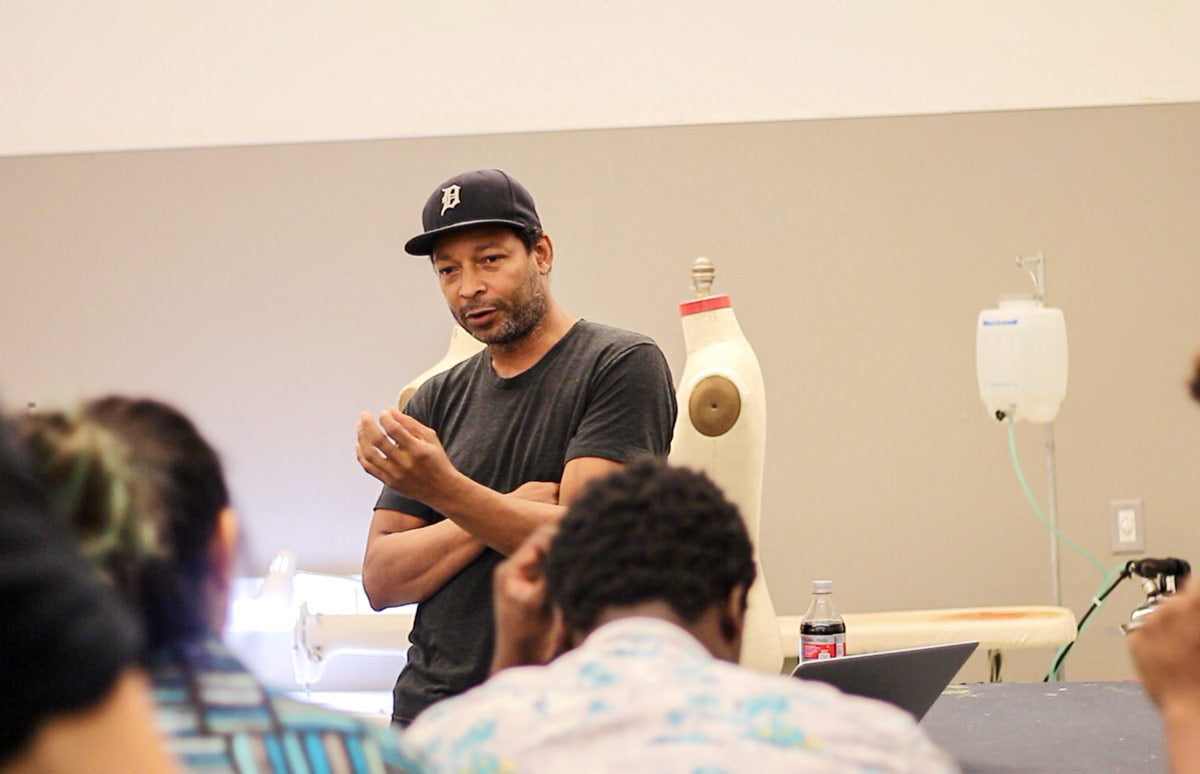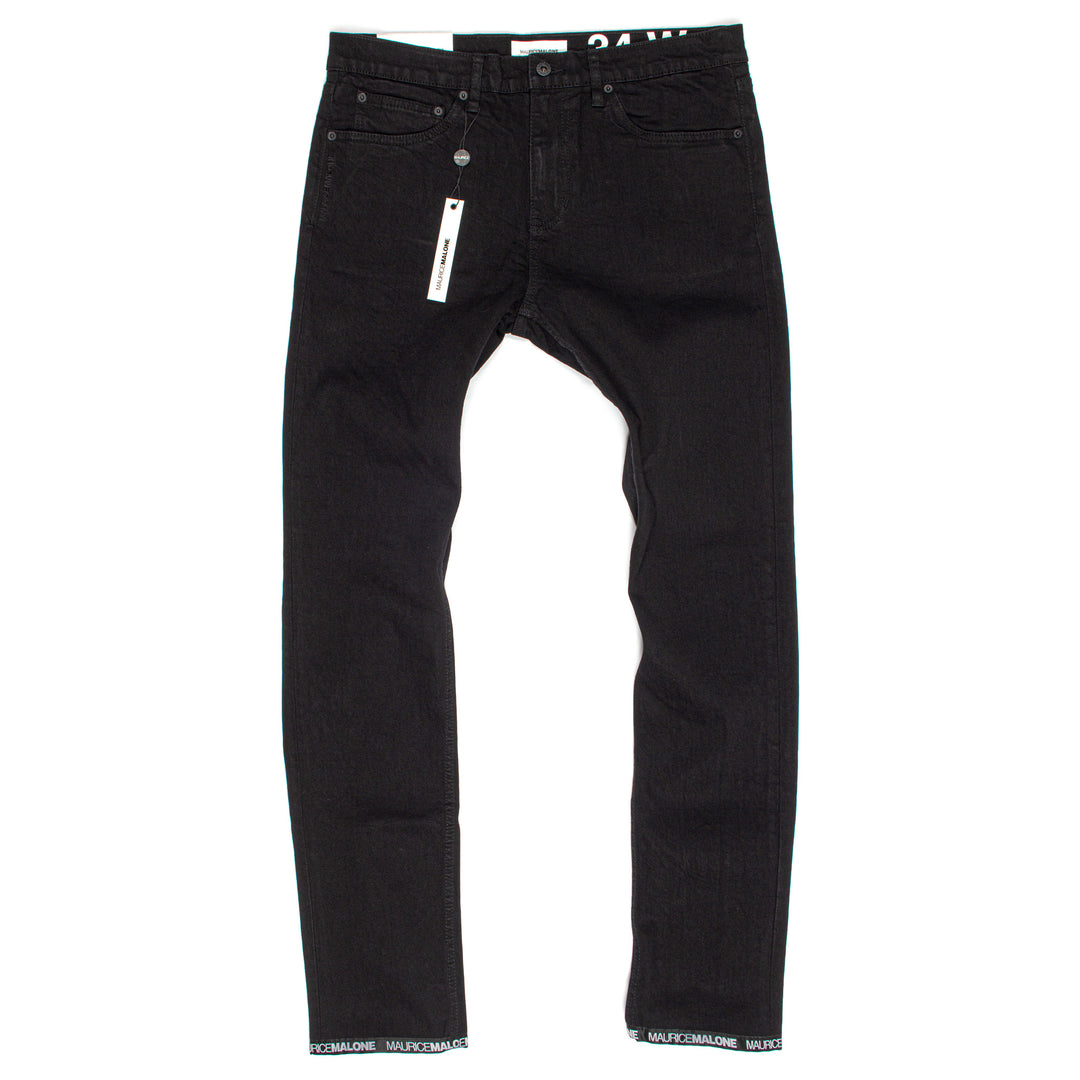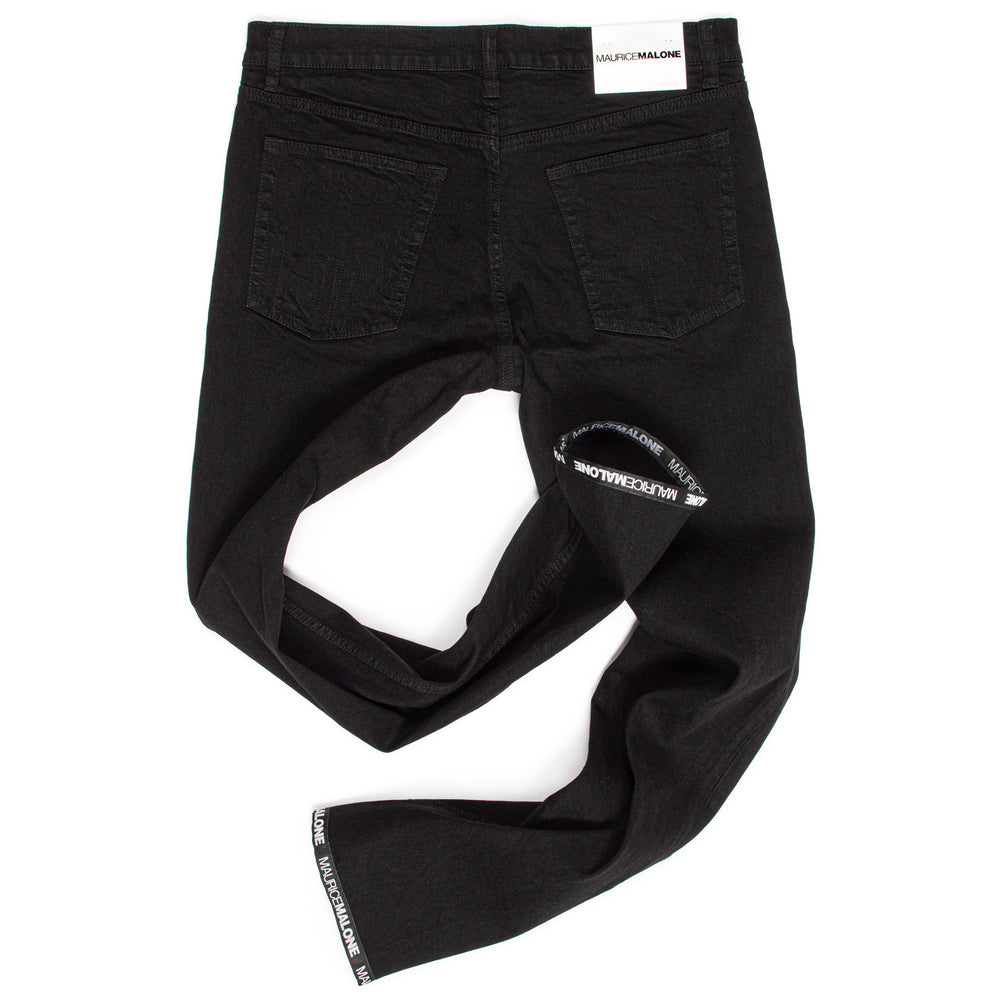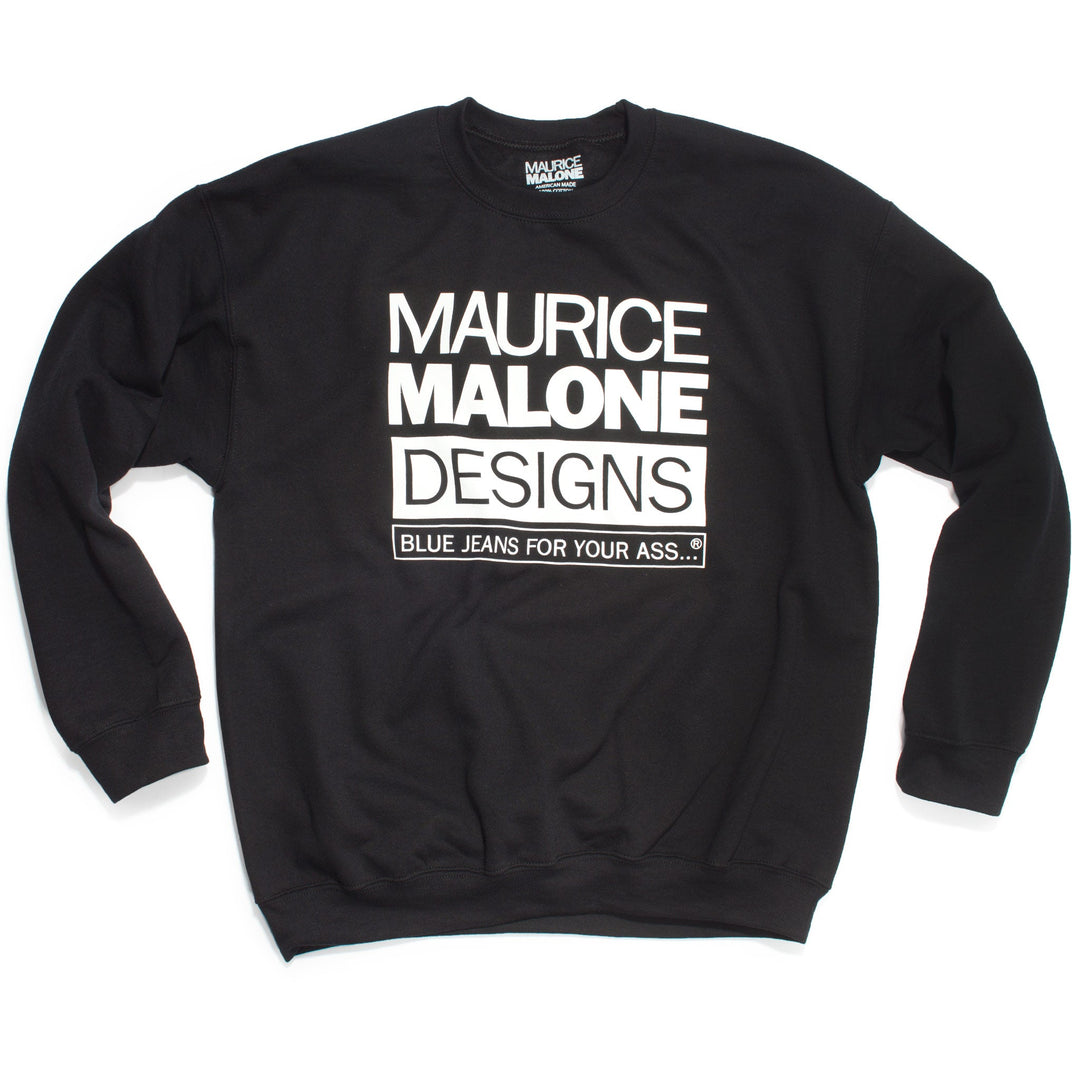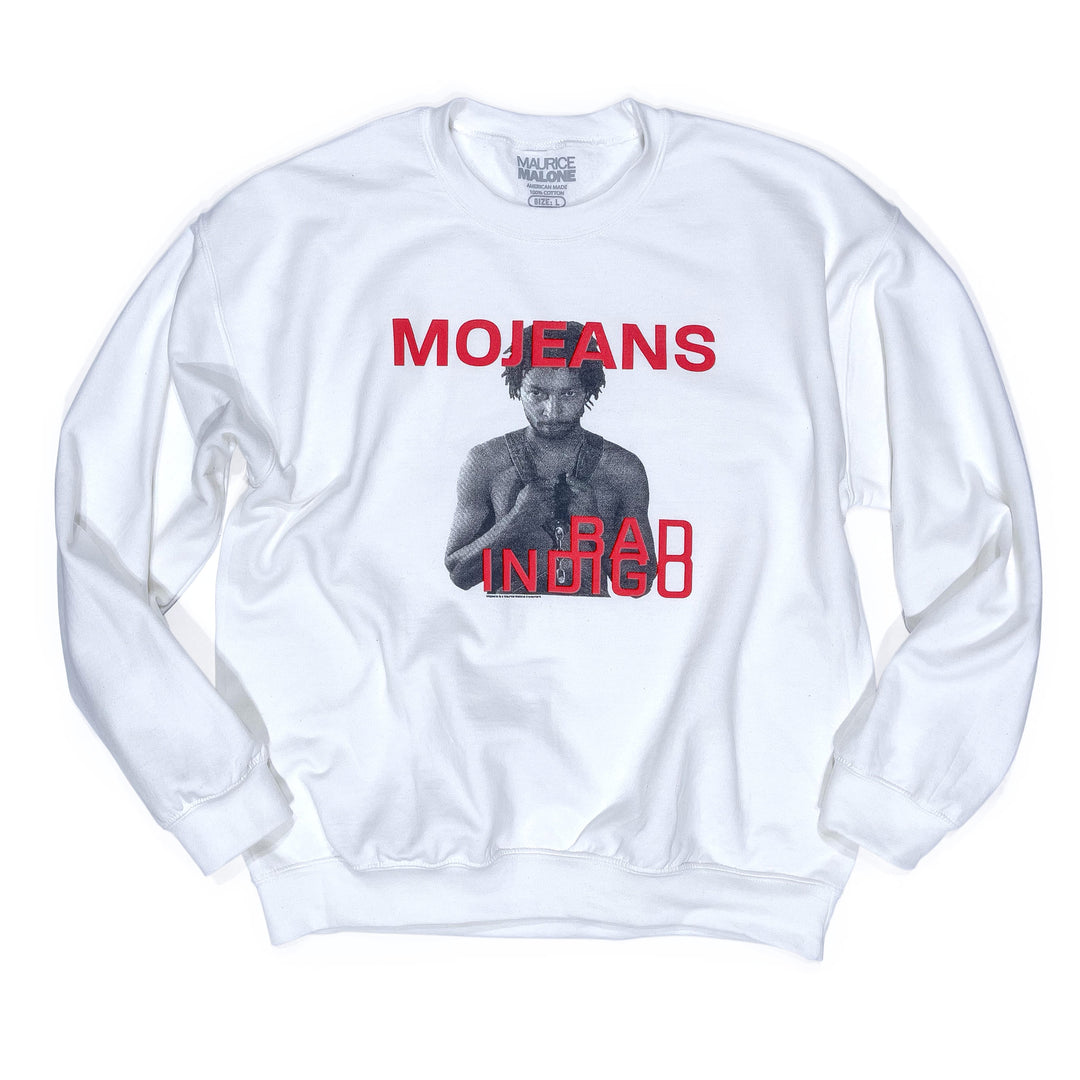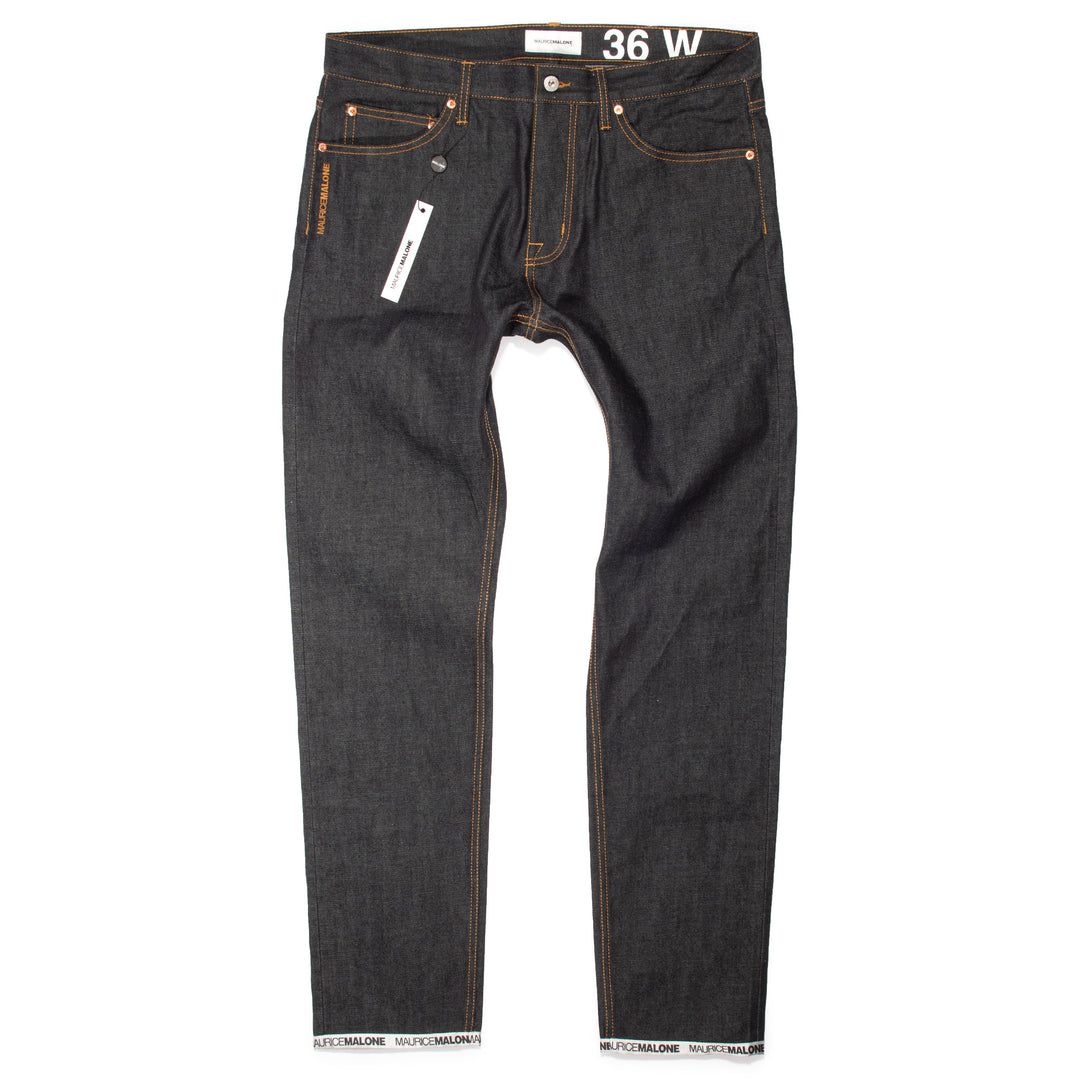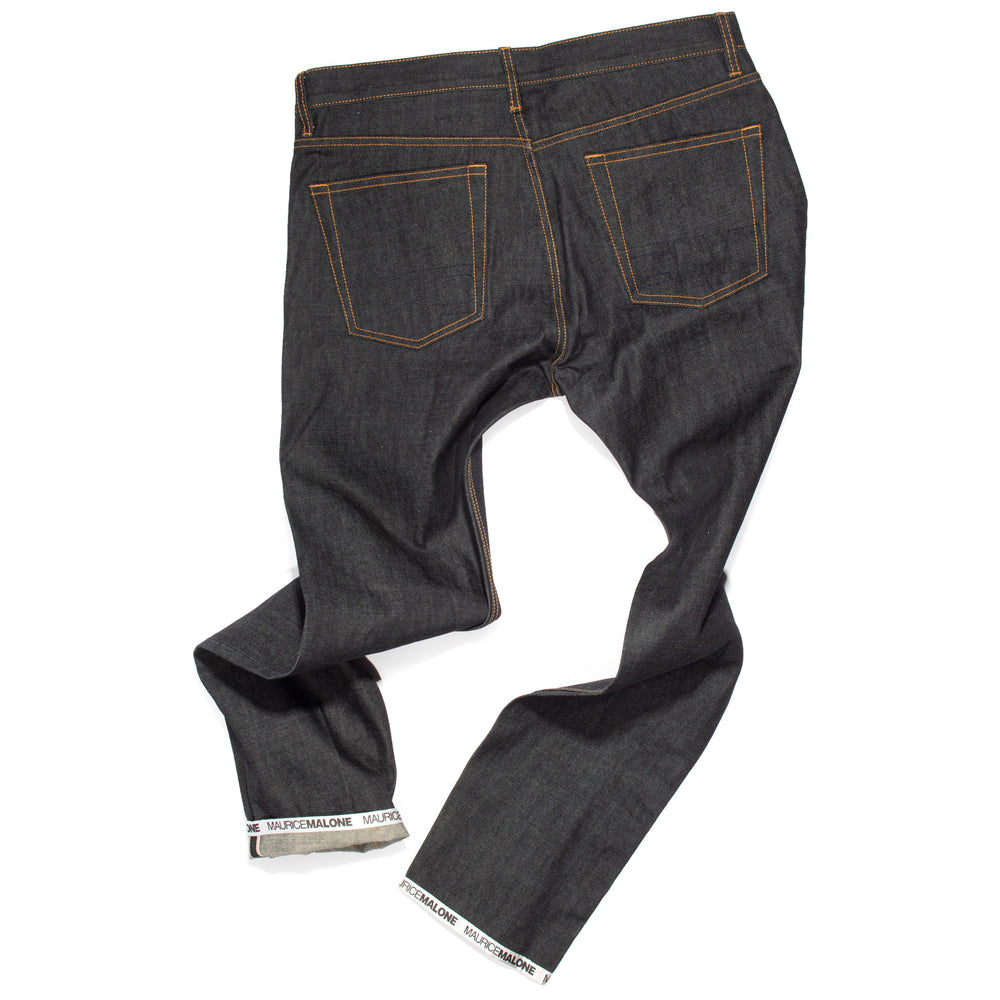About
He's been called the "Steve Jobs of denim," and he was named one of Rivet magazine's Top Denim Designers for 2020. Maurice Malone is a self-taught fashion designer with nearly 40 years of industry experience, noted for his distinct approach to denim design, innovation, and contributions to hip-hop culture. Born and raised in Detroit, Michigan, Malone began his fashion career as a teenager, making clothing from his mom’s basement.
On February 15, 1984, at the age of 19, he founded his first company. He included the date in the logo, and sold to local boutiques and Dayton Hudson's department stores. The moniker "Hardwear by Maurice Malone" was chosen for two reasons. Initially, he was creating a lot of designs that combined metal and denim. Second, he was hesitant to use his name since he assumed most brands at the time had European names.
In the late 1980s, he created The U.N. (Underground Nation), a short-lived late-night coffee and juice nightclub that simultaneously served as his home loft and daytime business studio. It was short-lived since the City of Detroit did not have a license for non-alcoholic dance clubs, so it was frequently shut down by the police.
Maurice relocated to New York City in 1989 out of frustration and a desire to be closer to the fashion business. He was influenced by the hip-hop scene in New York and decided to bring that spirit back to Detroit. He returned to his hometown after a year in Brooklyn to promote hip-hop concerts and parties.
Malone was instrumental in launching the golden era of Detroit hip-hop in the 1990s, beginning with open-mic rap parties at small bars. These grew into the legendary hip-hop parties that took place inside Stanley's Chinese food restaurant, "The Rhythm Kitchen," which inspired him to open "The Hip Hop Shop." His hip-hop parties, events, and venues were also used to market and promote his apparel line. More than 10 years later, they also served as the backdrop for the film 8-Mile, for which he assisted the filmmaker in replicating the parties and battle scenes.
Malone and a few additional brands became the founding fathers of the new urban hip-hop fashion and streetwear sector, which flourished over the decade of the 1990s. In 1995, he returned to New York, relocating to Williamsburg, Brooklyn, to work more closely with his new business partner, Simon Akiva.
Shortly after moving to New York, his next step was a future that encompassed a transition from baggy streetwear to sophisticated tailored apparel, at a period when hip-hop was considered a bad word in designer fashion. He began presenting runway shows during New York Fashion Week, and earned a 1997 nomination for the CFDA's (Council of Fashion Designers of America) Perry Ellis Award for New Menswear Designer of the Year. He became the first designer from hip-hop culture to successfully break into the designer fashion market, paving the way for other black designers, particularly those from the world of urban and hip-hop fashion, who followed.
“Few designers have been able to marry hip-hop flavor and designer fashion as successfully as Mr. Malone has,” wrote New York Times fashion critic Constance C.R. White.
Malone abandoned streetwear at the pinnacle of his company's popularity in the spring of 2001, breaking ways with his financial backer in streetwear to become self-financed and pursue his objective of consolidating the Maurice Malone brand as a high-end designer label. However, after investing all of his money in the fall 2021 season, he was unable to overcome the volume of cancelled orders from retailers following the horrific terrorist attacks on September 11, 2001, and his business failed.
In 2002, Malone partnered with a denim factory in China to bring back his streetwear brand, Mojeans. During this time, Malone developed a groundbreaking procedure that is now utilized in denim factories worldwide to manufacture authentic aged denim washes.
After years of seeking the right financing, he followed his own advice, which he frequently gave aspiring designers: "Start small and build up from there." At the end of 2011, he launched the Williamsburg Garment Company (WGC) as a one-man operation with less than $2000 and quickly became an internationally successful denim brand, selling in top designer boutiques, department stores, and denim specialty stores in the United States, Japan, Germany, Hong Kong, Australia, Korea, and Italy.
WGC began manufacturing all of its products in the United States in 2014. A few years later, WGC began its transition to a direct-to-consumer brand.
Maurice immediately refocused the brand from product-based sales to an internet service company in order to withstand the 2020 COVID shutdowns and retail store closures in New York. WGC has since become known as the leading denim alteration specialist in the United States.


